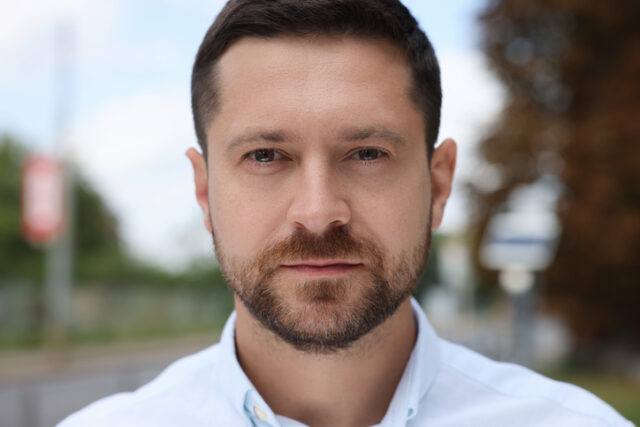It’s good to see the bright side in life, but some people take it too far.

Toxic positivity can lead you to ignore the reality of situations or simply not see it. And while those who insist on seeing the world through rose-coloured glasses might mean well, not acknowledging the bad stuff in life doesn’t make it go away. The funny thing is, you can always spot these avoidant types in the wild, especially because they tend to shell out clueless phrases like this at the drop of a hat.
1. “Everything happens for a reason.”

This is their go-to response when things go wrong, whether it’s a missed opportunity or a major setback. They’ll share stories about how their worst moments led to unexpected good things. While this outlook can help them cope with difficulties, it sometimes prevents them from seeing when things happen simply because of poor choices or bad luck.
2. “They’re probably just having a rough time.”

When someone behaves badly, they’ll immediately start constructing explanations that paint the person in a better light. Their empathy runs so deep that they’ll create entire backstories to justify someone cutting them off in traffic. While this mindset can create more understanding in the world, it sometimes enables genuinely toxic behaviour.
3. “It’s all going to work out somehow.”

No matter how dire the situation, they maintain an unshakeable faith that things will resolve themselves. Even when faced with mounting evidence to the contrary, they hold on to this belief. Their optimism can be contagious, but it sometimes prevents them from taking necessary action to fix problems.
4. “Maybe we’re just not seeing the whole picture.”

They apply this perspective to everything from workplace conflicts to global events. Any negative situation gets reframed as potentially positive from another angle. While this ability to consider different viewpoints is valuable, it can also lead to overlooking genuine problems that need addressing.
5. “At least we learned something from it.”

They transform every failure and disappointment into a learning opportunity. Even significant losses get packaged as valuable life lessons. Their ability to find growth in difficulty is admirable, but sometimes people just need to acknowledge that something really sucked without trying to find the bright side.
6. “They didn’t mean it that way.”

When faced with hurtful comments or actions, they automatically assume good intentions. They’ll spend energy creating elaborate explanations for why someone’s cruel words must have come from a place of pain or misunderstanding. This generous interpretation of other people’s behaviour can leave them vulnerable to people who actually do mean harm.
7. “Something better will come along.”

Lost a job? Ended a relationship? Their immediate response is to frame it as making space for something better. They genuinely believe that every closed door leads to an open window. While this optimism helps them bounce back quickly, it can also prevent them from properly grieving losses.
8. “I’m sure they’ll figure it out.”

Whether it’s a struggling business or a chaotic government policy, they maintain unwavering faith in people’s ability to sort things out. They default to believing in other people’s competence and good intentions. Sure, their trust in human potential is beautiful but can lead to passivity in situations that require intervention.
9. “Things aren’t as bad as they seem.”

No matter how objectively difficult a situation might be, they’ll find ways to minimise its severity. Global crises get reduced to temporary setbacks, and major problems become minor inconveniences in their minds. While this helps them maintain peace of mind, it can make people feel like their very real concerns are being dismissed.
10. “We’re all doing our best.”

This is their explanation for everything from poor service to major mistakes. They extend infinite grace to human error and assume everyone is operating at maximum effort. While this compassionate view fosters forgiveness, it sometimes excuses genuine negligence or malice.
11. “Change is always an opportunity.”

Any disruption or upheaval gets immediately reframed as a chance for growth or improvement. They see potential in chaos and possibility in uncertainty. Their adaptability is remarkable, but this outlook can minimise the real stress and difficulty that change brings for many people.
12. “The timing just wasn’t right.”

Failed projects or missed opportunities get chalked up to cosmic timing rather than concrete factors. They believe deeply in some grand universal schedule where everything happens when it should. This perspective helps them accept disappointments gracefully but can prevent honest evaluation of what went wrong.
13. “Maybe this is actually a good thing.”

They start looking for hidden benefits in every negative situation immediately. Car breaks down? Great chance to catch up on podcasts while waiting for the tow truck. While this ability to find silver linings is impressive, it can come across as tone-deaf during genuine hardships.
14. “The right people will understand.”

When faced with criticism or conflict, they comfort themselves with the idea that those who matter will get it. They maintain faith that their true allies will see their good intentions. While this helps them handle disagreement, it can also create an unhealthy us-versus-them mentality that dismisses valid criticism.




